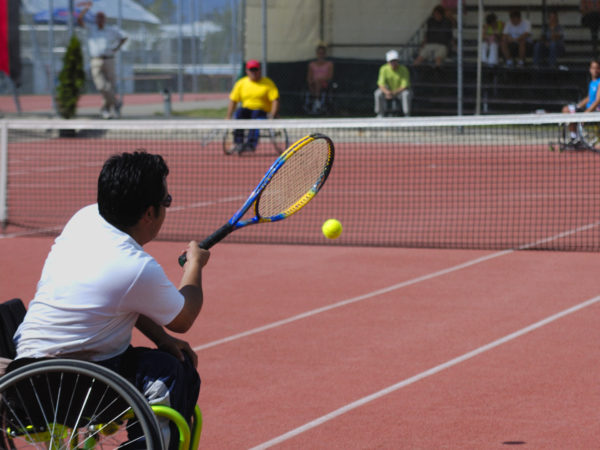Exercise for the Disabled?
My husband is unable to walk. However, he wants to lose weight. Everyone talks about exercise and eating properly. He does eat properly but can’t exercise due to the lack of strength in his legs and balance problem. What can be done?
Andrew Weil, M.D. | June 6, 2005

The benefits of physical activity aren’t limited to those who can walk. The disabled can manage their weight through other forms of physical exercise, which also affords such benefits as lessening stress, enhancing self-esteem and promoting a more positive outlook on life. My first suggestion for your husband is to consult his physician to make sure that there are no medical reasons why he should not undertake an exercise program and that none of the medications he takes will compromise his ability to exercise. A consultation with a physician who specializes in physical medicine and rehabilitation would also be helpful. These doctors can guide your husband toward activities that would suit him best and benefit him most.
These days there is an exercise or sport for almost everyone with a disability. Even if your husband can’t walk, he may be able to swim or participate in water sports. Perhaps he can ride a stationary bicycle. If not, hand cycling can provide a good, calorie burning aerobic workout. With a hand cycle you use your arms instead of your legs to power the bike.
Strength training should be a part of every exercise program. Building muscle not only enhances strength, it contributes to weight control because the more muscle you have, the more calories you can burn. Your husband may be able to use free weights to build his upper body strength, work on machines at a gym, or exercise at home with resistance bands or tubing or even such weighty household items as soup cans. Because learning proper form is essential to getting the most out of strength training exercises, it is always best to start out with a session or two with a personal trainer or physical therapist experienced in working with the disabled. And, no exercise program would be complete without a stretching component to maintain flexibility.
If your husband enjoys sports, he can consider wheelchair games including volleyball, tennis and basketball. I suggest exploring such resources as the National Center on Physical Activity and Disability (www.ncpad.org) and, to learn about exercise and sports for the disabled, visit http://dmoz.org/Sports/Disabled/Wheelchair/. Best of luck.
Andrew Weil, M.D.









